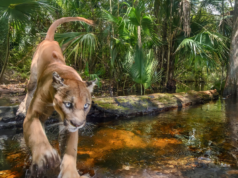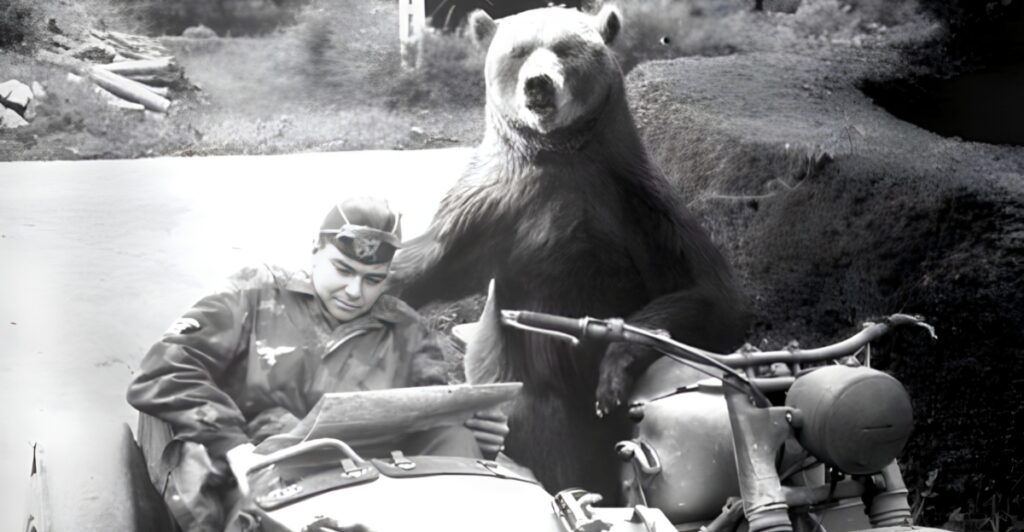
“Dad said he was a symbol that united the soldiers. He was much more than a bear; he thought he was one of them,” recalled Mrs. Butler, about what her father, Cpl Andrzej Gasior, had to say about Wojtek, the bear.
Understandably, Mrs. Butler thought her father’s tall stories about fighting alongside a bear were just bedtime stories. But later in life, one of his war buddies showed her photographic proof.
No one blames Mrs. Butler for not believing her father. Who would believe anyone who said they had a bear in their battalion?
Wojtek
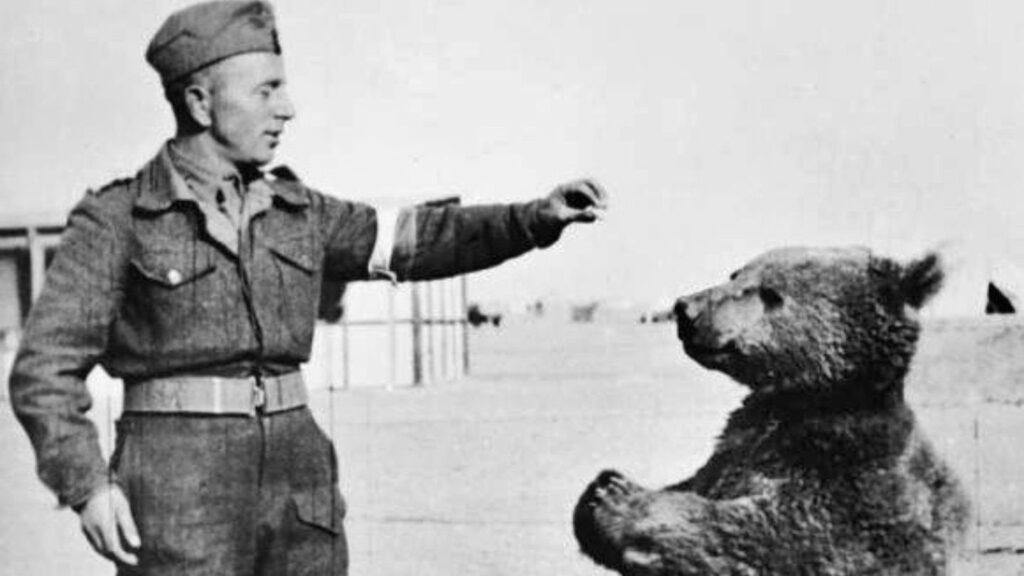
Wojtek’s life is well documented, and his story starts whena hunter tragically kills his motherr. But unlike Bambi, he would be adopted by grizzled war veterans – the 2nd Polish Corps.
Wojtek, a Syrian brown bear, was originally found in the Middle East. After a bond developed, the military men wouldn’t leave Wojtek behind.
They knew the only way to justify bringing a brown bear with them was to show their superiors he had a use. That’s when they got Wojtek formally enlisted.
A Joyous Warrior
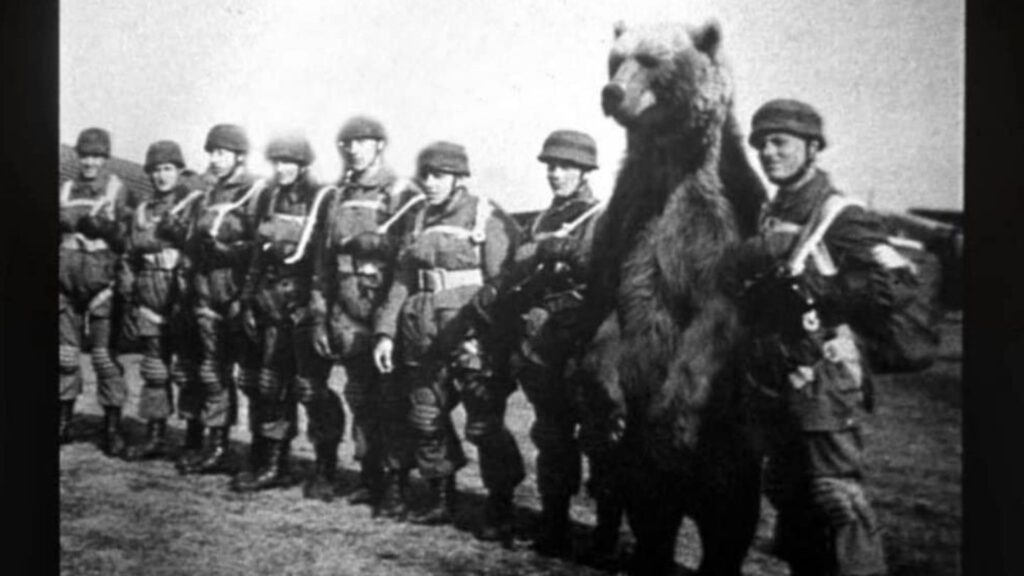
But what use could a bear have in a war? Well, most deployed troops that weren’t a part of the 2nd Polish Corps probably asked that question until they saw Wojtek carrying heavy artillery shells to his comrades at the Battle of Monte Carlo.
The bear followed the 2nd Polish Corps on their European campaign. Soon after proving himself useful, the 2nd Polish Corps decided to make the bear carrying an artillery shell their emblem.
Throughout his service, Wojtek was taught the formalities of a soldier, like saluting, marching, and waving. Wojtek wasn’t just a tool, either. He loved his duties, but when they had downtime, he would take part in all of the camp activities.
Bonding With His Brother-In-Arms
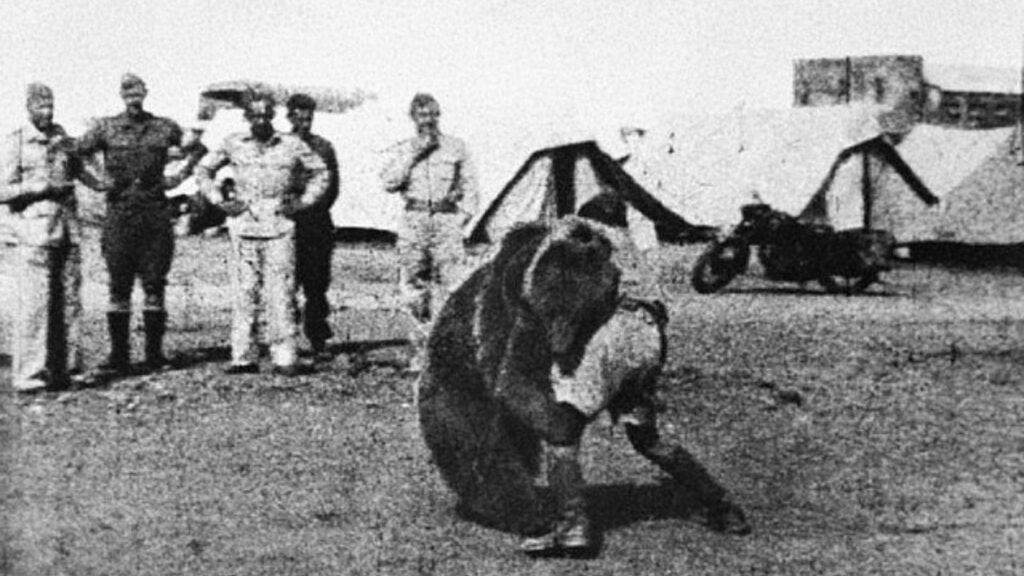
The bear was fond of drinking beer with his comrades and eating any cigarettes offered to him. Thankfully, Wojtek’s immense weight meant he never got intoxicated from the alcohol.
He was given double rations to compensate for a bear’s appetite and would often participate in camp activities like wrestling and boxing, which gave him a huge advantage. Wojtek even learned how to take cold showers all on his own – something he loved doing.
Once the war had ended, the company was sent to a camp in Scotland in 1946, where Wojtek enjoyed frolicking in the fields and swimming in his swimming pool, which his comrades had built.
After The War
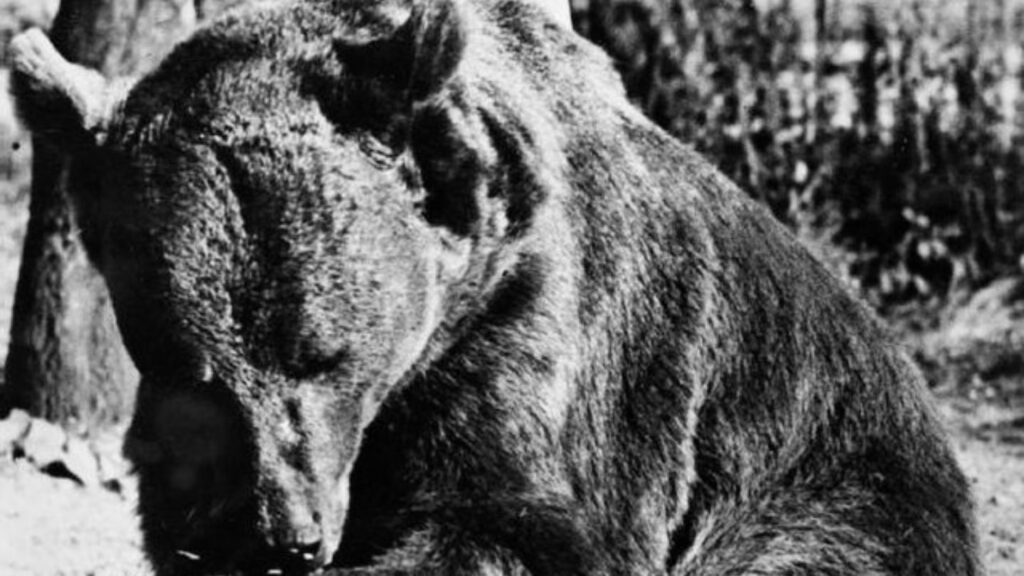
Later that year, with no longer use for the soldiers, the 2nd Polish Corps was demobilized. Still in Scotland, the men needed to figure out what to do with Wojtek before they went back to Poland.
The men had raised the bear and had a strong bond with him, but sadly, they knew they couldn’t take him to Poland. They feared that Wojtek would be used for propaganda and be taken from them.
They couldn’t return him to the wild either. They knew all too well that they raised him and probably wouldn’t survive. There was only one solution. With a heavy heart, they agreed to leave Wojtek behind in the care of the Edinburgh Zoo in Scotland. It was ultimately the safest place for him.
His Living Memory
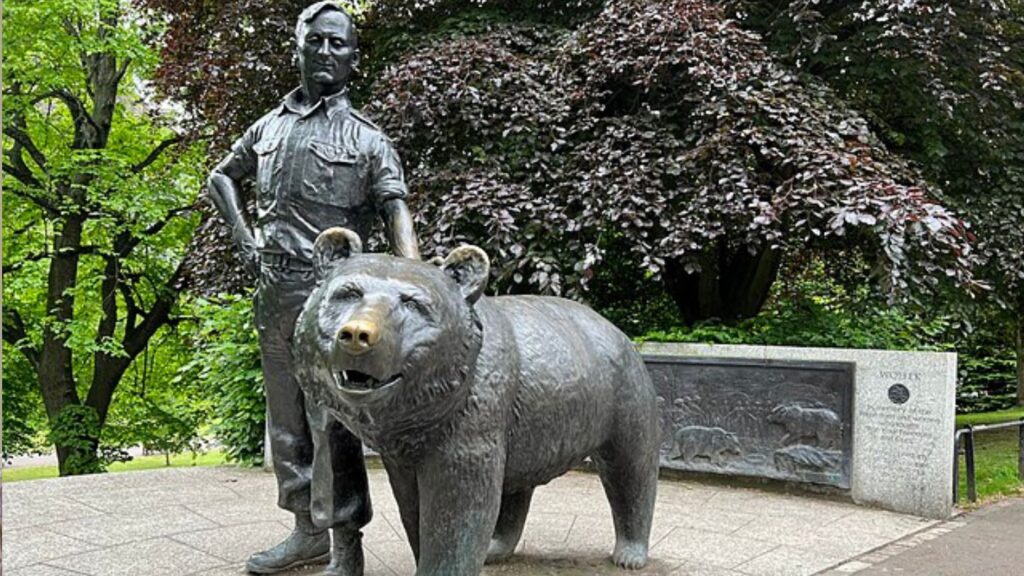
Mrs. Butler’s father, Cpl Andrzej Gasior, told her that despite men being taught not to show their emotions, the bond that he and his company had made with Wojtek meant that when he went to visit him at the Edinburgh Zoo, he would “sob like a baby.”
Wojtek lived out the remainder of his days at the Edinburgh Zoo and passed away in 1963. He had countless films written about him and has three statues made in his honor, including one in Princes Street Gardens, Edinburgh.
Source:


